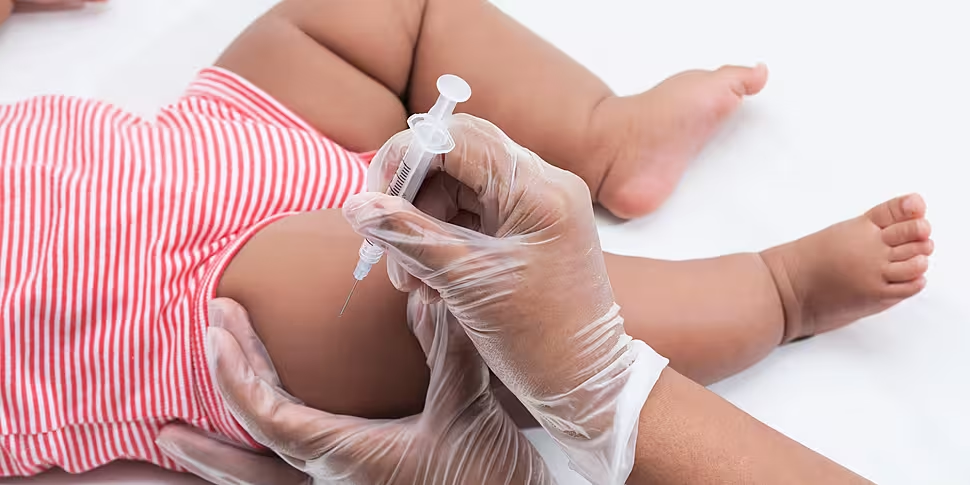The Government’s decision not to offer RSV immunisation to all babies this winter will pile even more pressure on our children’s hospitals and waiting lists, according to pharmacist Sheena Mitchell.
The podcaster and pharmacist is warning that many parents are confused and concerned about the rollout of the new RSV jab.
Under the Government’s ‘Pathfinder’ programme, all babies born from September 1st to the end of February 2025 will be eligible to get the new jab.
Babies born before September or after February will not be able to access it, even though they are just vulnerable to the disease.
The jab is not available privately, meaning many babies will not be able to access it at all this year.
View this post on Instagram
On Breakfast Briefing this morning, Pharmacist and Podcaster Sheena Mitchell said the National Immunisation Advisory Committee (NIAC) had called for the new jab to be offered to all babies.
She said parents of babies who can’t get the jab will have to rely on other preventative measures like handwashing, avoiding crowded places and avoiding people who have colds and other sicknesses.
She warned that the more babies that contract RSV, the more pressure is put on the hospital system.
“It's not just the direct cost to the patient who is suffering with RSV,” she said.
“So they'll go into hospital, if they need it, for approximately two and a half days - we know that's the case - and unfortunately, a fifth of those babies will need an ICU bed.
“Now in the context of a country where we have over 3,000 children on inpatient wait lists waiting for, you know, access to hospital treatment, we can't afford to be using those beds when it is preventable.”
RSV
Ms Mitchell said RSV caused around 1,400 hospitalisations last winter and judging by the experience in Australia over the southern hemisphere’s winter, we could be in for a tough season again this year.
She said the current RSV jab rollout should save about 1,040 hospital nights this season; however, a full rollout would have saved Ireland’s hospitals around 3,140.
“We know that in Australia they had a really bumper winter season of flu, COVID and RSV and it resulted in what they termed ‘Flumonia,’ which is a complication where, when you go from one respiratory disease into another, into another, your body is less able to continue to have resilience and you can be more susceptible to pneumonia,” she said.
“What happens in Australia, we tend to follow the same pattern here,” she continued.
“So we do have the advantage of knowing what's coming. It was a long, drawn-out season in Australia, so it's kind of a situation where you need to tuck in and brace yourself.”
Flumonia
The pharmacist said Ireland should have been doing everything it can to protect children before the RSV began.
Ms Mitchell said a separate change to the Childhood Immunisation Schedule that sees the new chickenpox vaccine offered to children born from October 1st onward is also causing confusion for parents.
The chickenpox vaccine is available privately to children who do not qualify through the State scheme.
Symptoms
An increase in cases of seasonal RSV is to be expected during the winter.
Almost all children get RSV by the time they are two years old.
Symptoms of an RSV infection start out like a cold and can include:
- Cough
- Wheezing
- Runny nose
- Difficulty feeding or decreased appetite
- Fever (temperature of 38C or higher)
- Sore throat
The symptoms usually appear in stages and not all at once.
After four to five days, babies and young children can develop bronchiolitis. Their symptoms may get worse and include:
- Increased breathing (more breaths per minute)
- Wheezing
- Difficulty feeding or decreased appetite
- Less wet nappies
CHI says these symptoms often remain for three to four days before slowly getting better.
It can usually take 10 to 14 days before babies and young children recover from an RSV infection.









